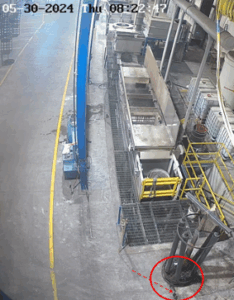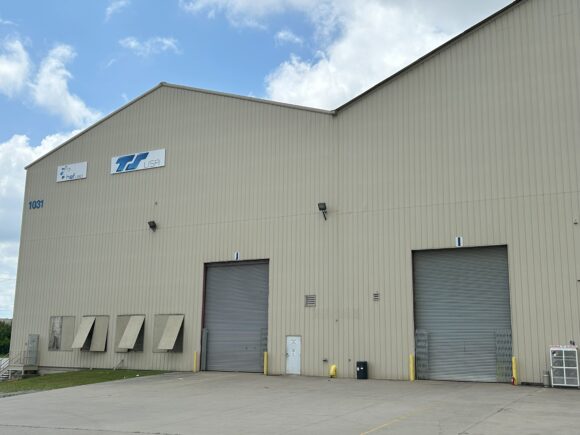A French-owned metal-treating company in Tennessee failed to utilize safety management and failed to implement lessons learned from previous incidents before a 2024 explosion that killed one worker and heavily damaged the site, the U.S. Chemical Safety and Hazard Investigation Board said in its final report on the accident.
“This terrible incident underscores how critically important it is for facilities like TS USA to have a comprehensive and effective safety management system in place,” CSB Chairperson Steve Owens said in a statement this week. “The absence of strong process-safety protocols—and the failure to apply lessons from past similar events—put TS USA’s workers at serious risk, with one of them tragically being killed.”

The TS USA plant in Chattanooga, part of the France-based HEF Groupe, hardens metals using a nitriding process. When a drain hole in a roller cylinder became clogged in a molten salt bath, the unit erupted and severely burned a worker, who later died, the safety board found. Three other worker were injured. The explosion resulted in multiple fires and $1.3 million in damage, forcing the facility to be shut down for eight months.
At least three similar incidents had happened at other facilities owned by HEF Groupe, including one at the Chattanooga plant a year earlier. But the parent company did not share information about how to prevent the situations with its facilities, the CFB report said.
The year-long investigation by the safety board did not appear to result in fines or other penalties for the company. The Tennessee Occupational Safety and Health Administration imposed a $6,600 penalty against the company.
The chemical board made several recommendations to improve safety at the plant:
- Installation of physical barriers to protect employees from molten salt releases
- Development and implementation of a comprehensive safety management system incorporating industry standards
- Creation of a corporate program to ensure that safety information is effectively communicated and enforced across all HEF Groupe facilities
- Establishment of a safety position, with a worker who has expertise and experience in safety management systems, at each TS USA facility.
The board also laid out key lessons for the metal-treating industry:
- Even in the absence of regulatory requirements, companies should develop safety management systems to ensure the operations are managed and risk is mitigated based on concepts developed by the Center for Chemical Process Safety’s Guidelines for Risk Based Process Safety or other industry guidance.
- Companies should incorporate elimination of hazards or inherently safer design concepts, such as simplification, into hazard analyses to ensure that there are effective and reliable controls to protect employees from process hazards.
- Companies should have an incident investigation program that generates formal reports, performs causal analysis, and reviews corrective actions. The findings of the investigations should be communicated, including translation, throughout the site and to other facilities within the company.
- Companies should ensure that critical safety information is communicated to all employees and that safety knowledge is managed and institutionalized throughout the company. Safety knowledge management ensures that previous incidents and lessons learned are institutionalized at all levels of the organization.
- Companies should adopt guidance, such as that developed by the CSB following the CSB’s investigation of the 2010 Macondo incident (the Deepwater Horizon oil rig explosion) for the oil and gas industry, to govern safety activities in day-to-day operations.
The full report can be seen here.
Photo: The TS USA facility in Chattanooga (Chemical Safety and Hazard Investigation Board).
Was this article valuable?
Here are more articles you may enjoy.



 Florida Engineers: Winds Under 110 mph Simply Do Not Damage Concrete Tiles
Florida Engineers: Winds Under 110 mph Simply Do Not Damage Concrete Tiles  Lemonade Books Q4 Net Loss of $21.7M as Customer Count Grows
Lemonade Books Q4 Net Loss of $21.7M as Customer Count Grows  Munich Re Unit to Cut 1,000 Positions as AI Takes Over Jobs
Munich Re Unit to Cut 1,000 Positions as AI Takes Over Jobs  World’s Growing Civil Unrest Has an Insurance Sting
World’s Growing Civil Unrest Has an Insurance Sting 


